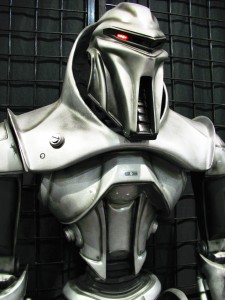Sitting in a car that drives itself is like a dream, and now, this dream is closer to become true as more and more manufactures are introducing semi-autopilot systems that assist the human driver to drive better and safer. It would be a huge step if the car can operate by itself but this process in done in many smaller steps. Autopilot seems to be the next generation vehicles as many manufactures are rushing to develop their own autopilot car. This technology will reduce human error and therefore reduce the chances of traffic accidents.
Although autopilot car seems to only appear in science fiction stories, however the technology has already been used on some cars today. Such as highway lane assist and adaptive cruise control technology. So how does auto piloting work in a car? First of all, It has to be able to sense the surroundings by systems using advanced imaging systems to gather information about a vehicle’s surroundings that is then cross-checked against detailed GPS and map data . Some other manufactures uses only camera and laser sensor based systems which are much more affordable but does not perform as well.
How a Tesla S P85D auto pilot system
Autopilot cars have had some success in testing but it is still at an early stage in real use. The technology might not be ready to be accepted by the governments and public but the result of autopilot cars can potentially affect our lives or even change it. With computing systems running the cars which means cars could be driving at a faster speed and the existing traffic system would allow more cars to be on the roads. This would greatly reduce the time spent in the cars and even use the time in the cars to doing other things . Another major advantage of autopilot vehicle is that it takes out human errors of driving. Each year many traffic accidents are caused by distraction of drivers (texting, phoning, loose of concentration, sleeping). These will no longer be a problem as autopilot cars arrive. Below shows how an Audi A7 parks itself in an very efficient manner.
With lots of researches and improve in technology, autopilot cars may no longer be a dream in few years’ time. As the technology becomes much more mature it is up to whether the public and the government would accept such an idea. In the near future, we may be able to watch TV or play games on our way to work or school in an autopilot car.
Work Cited
– Can I See Your License, Registration and C.P.U.?
– Autos on autopilot: the evolution of the driverless car.
– Car autopilot would end text danger while driving, says Volvo.




